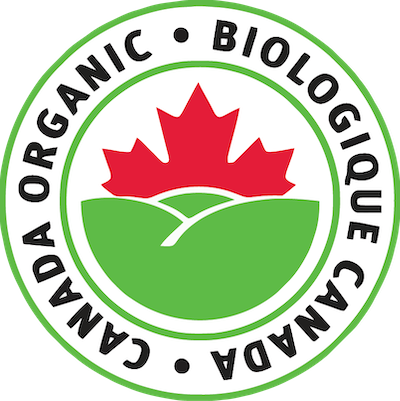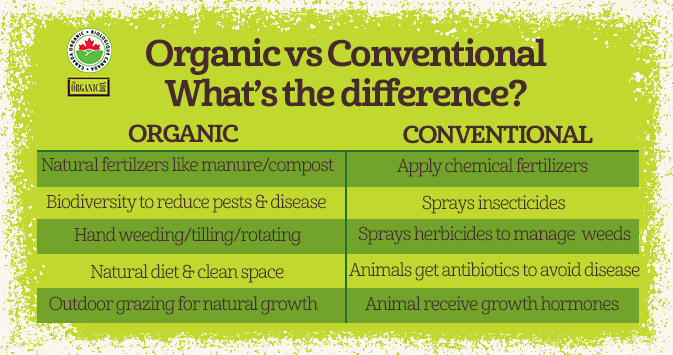Understanding Organics as a Growing System
Many people believe that organic just means no sprays or fertilizers but it is much more than that! It's not un-normal to see food at markets advertised as 'chemical-free' or 'no herbicides'. Although this is an excellent start, as certified organic farmers we understand our farming system in a more comprehensive way than just no sprays. Organic farming systems aim to replace all aspects of conventional farming with a natural process or remedy to address the root challenge being presented to the plant or other food items.

Trust the label, it's the LAW!
Referring to a product as certified organic is a big deal. It takes an average of 3 years and thousands of dollars to transition any growing/raising operation to certified organic. It involves applying for inspections, submitting samples of soil and water, reviews, tours and so much more. For that reason when you see a product that is certified, it has gone through a rigorous process to ensure that it meets the strict standards set by the Candian Organic Standards (COS.) The Organic Council of Alberta mission is to increase the awareness of organics and help food producers through the process of becoming certified organic.
As of April 1st, 2019 if your food says it is organic, IT IS! Government legislation passed under the Supporting Alberta's Local Food Sector Act states that anyone who uses the term "organic" must be certified in accordance with the federally regulated Canadian Organic Standards.
Have a look at the table that explains some of the key differences between Organic and Conventional Food.

Organic vs Conventional - What's the difference?
If a comprehensive pest management plan is in place and correctly implemented, organic farms will have the same productivity as conventional producers. However, a farmer that simply stops spraying and applying synthetic compounds without introducing alternative preventative measures will experience significant losses to pests and disease. As you are planning your garden for this summer, we encourage you to keep this in mind and ensure you have a plan in place to prevent pests and deal with issues without resorting to conventional methods.
Education and knowledge is power in the new food economy and dedicated organic farmers will willingly and gladly spend hours talking with their customers about their pest management processes and challenges they see on their farms each year.
